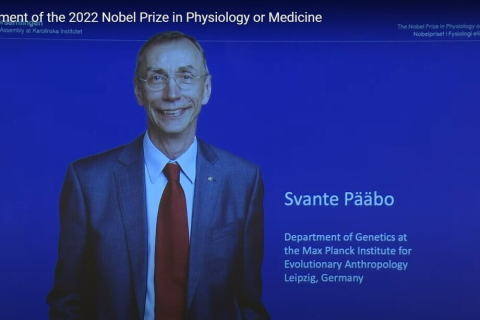- This year's prize answers the question of where we are from - believes Prof. Marta Struga from the Department of Biochemistry MUW. - Svante Pääbo's research proved that as Homo sapiens we lived with other humanoids and could interbreed with them. We share genes with them - the expert stresses.
The Swedish scientist managed to show that modern humans in Asia and Europe have a small percentage of Neanderthal DNA and up to 6 percent of Denisovan DNA. To prove this, however, he had to conduct painstaking genetic studies. He studied mitochondrial DNA, which previously had to be extracted from the bone remains found in the caves. Based on this, he created a genealogical path of humans.
The level of difficulty of this research is pointed out by Prof. Michal Grąt from the Department of General, Transplant and Liver Surgery UCC MUW: - Svante Pääbo conducted a very difficult genetic analysis. He had to encounter problems related to damage to mitochondrial DNA, which was, after all, subject to various physical and chemical factors. However, the scientist managed to overcome these difficulties and answer the question of what our beginnings were like.
All the experts commenting on this year's Nobel Prize during the Nobel Week agreed that it is a prize at the intersection of paleobiology, genetics and anthropology. So could this research have any impact on modern medicine?
- Mitochondrial DNA is somewhat overlooked in medicine. Meanwhile, we are already seeing patients who develop diseases resulting from damage to mitochondrial DNA. These include neurodevelopmental diseases, certain types of epilepsy. Perhaps this Nobel Prize-winning discovery will direct medicine toward these very rare cases of disease - thinks Wojciech Feleszko, MD, PhD, from the Department of Pediatric Respiratory Diseases and Allergology UCC MUW.
Svante Pääbo was born in Stockholm in 1955. Today he is the director of the Max Planck Institute for Evolutionary Anthropology in Leipzig. He is also a professor at the Okinawa Institute of Science and Technology and holds honorary doctorates from several other universities. At the University of Leipzig, he teaches evolutionary biology. He has been awarded many scientific prizes, including today's Nobel Prize.
The 2022 Nobel in physiology or medicine for Svante Pääbo
The prize went to the Swedish paleobiologist for his discoveries concerning the genomes of extinct hominins and human evolution. - This is the first Nobel awarded for time travel - commented experts from our university at the Nobel Week meeting.
